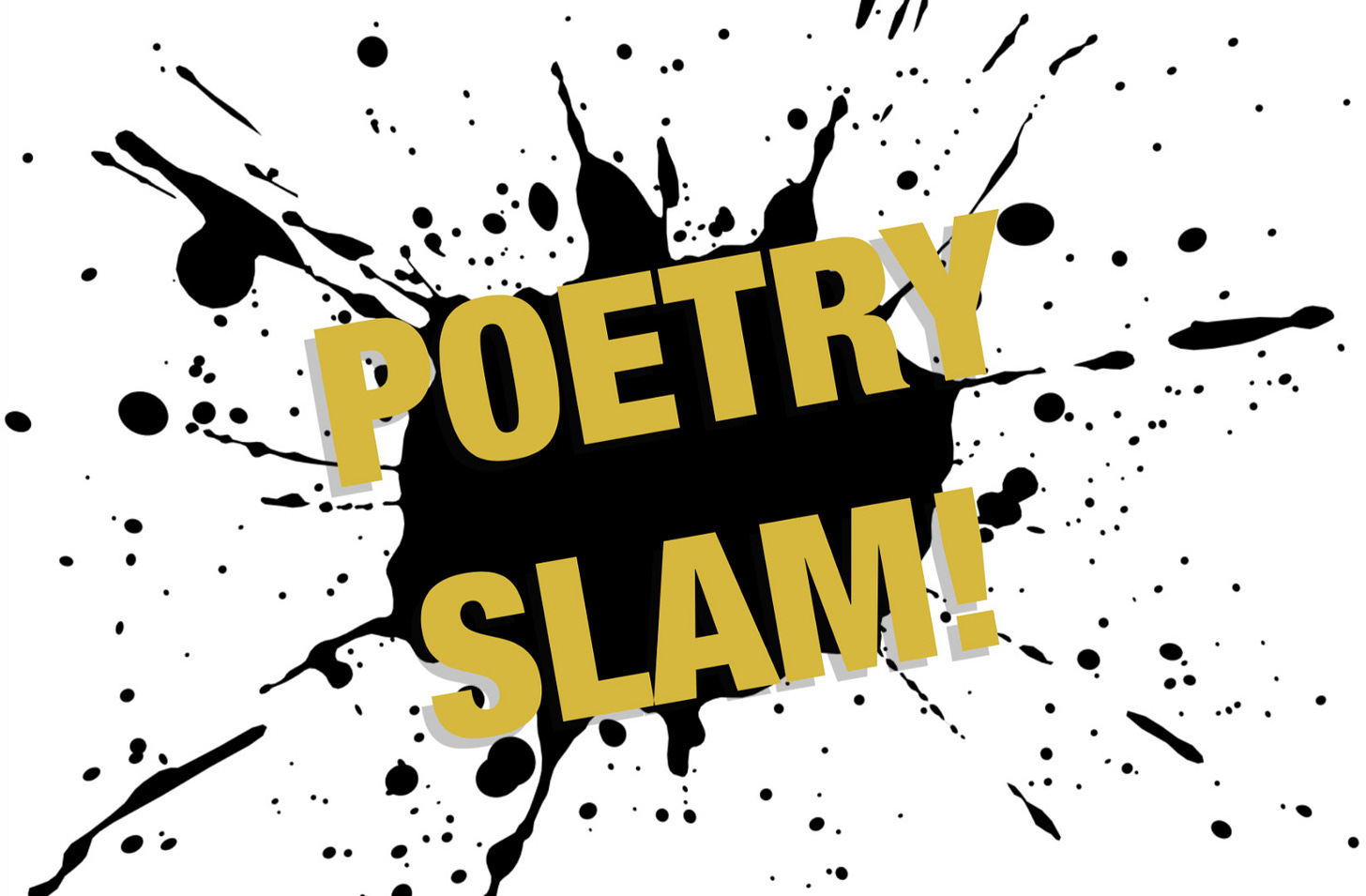There is no smiling at poetry slams any more. Laughter is not welcome, unless mocking the sexual prowess of a spurned lover, but should never be done in mirth. Tragedy is the animating force of the art form and also the currency by which one receives the approbation of the audience. The more traumatic and raw, the better. Unveiling your deepest, darkest pains in a clever word play sends the room into frissons of empathetic ecstasy, fingers snapping, heads nodding, and “mmm hmm”-ing in unison like a Greek chorus. At least that was the lesson I took from a slam I attended in Washington, D.C this past week.
To be fair, the evening didn’t’ start out all gloom and doom. The host kicked off the show on a jovial note, cracking jokes to get the crowd warmed up before the performers took the stage. He reminded everyone that public speaking is one of the biggest fears people have and that no criticism would be tolerated. And for the performers, no hate speech would be allowed. This was a safe space. After those admonishments, he proceeded to usher a cavalcade of amateur poets to the stage, each one sadder than the one before.
The first was the host himself rhapsodizing on how the US economic system is rigged to keep workers trapped in place. The second was a middle-aged man who lamented how society had, “molested my mind” – his word not mine- to the point that he was incapable of seeing women as human beings with a soul, just body parts he wanted to exploit for his own perverse gratification. He was followed by a teenage girl who shared her multi-year battle with an eating disorder and how she often doesn’t like herself. Next up was a non-binary performer who grew up wanting to believe in the goodness and moral clarity of the United States but now realizes it’s all lies. The last poet I saw before leaving spoke of how being raised by two drug addicted parents resulted in overcompensation and turned her into a perfectionist who would no longer grant men with base motives (‘fuck boys’ was her exact terminology) access to her body or her elevated spirit.
I wish I were exaggerating, but I might actually be underplaying the dark cloud that hung over the room. It was a lot to take in.
I wrote months ago of how I used to attend poetry slams regularly as a young man in Chicago. Even then, they were a platform for protest and to air personal struggles: Racial justice, broken hearts and dreams not yet fulfilled. I am loath to make generational comparisons, but the main difference I see between those days and now is that the poets in the early 2000s saw the world as a flawed place they were trying to make better as they struggled to find their place in it. The people I saw Tuesday night saw themselves as actors with no agency, wronged by forces beyond their control, and saw no hope for the future.
That mindset extends beyond poetry. For the past decade, there has been a broad societal catharsis of grief. Poll after poll shows increasing pessimism about the future. Social media has become a public forum to share traumas and commiserate with like-minded individuals. We post black squares on our timelines in solidarity with those struggling to survive in the harshest conditions imaginable. The 24-hour news cycle leads every broadcast with the tragedy of the day.
These public displays are a corrective to a time when many injustices and struggles with mental health were swept under the rug. Marginalized voices, in particular, weren’t given a platform to express their pain or have their experiences validated. No one should have to suffer in silence, but does the suffering have to be this loud?
I say that because the lack of tolerance appears to have swung in the opposite direction. Post a picture of your kids playing in the park on a day when there has been a mass shooting in some far-flung location and you’re accused of being tone deaf. Show off your new car or talk about how much fun you had on your European vacation and you’re out of touch with the common man. It’s not ok to be ok.
The beauty of America is its pluralism. No one voice speaks for all. However, if negative voices are the only ones being amplified, it’s no wonder a malaise has permeated the culture.
As a general rule, happy people don’t have much to say. They’re busy leading their lives rather than commenting on them, but maybe they should. I’d be all for a Good Vibes open mic to lighten the mood.


